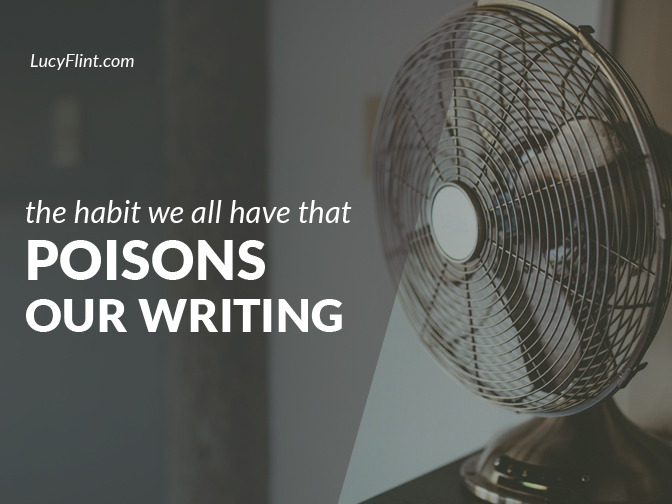Your Secret Weapon (And Why You Need One) For When You'd Really Like to Throw a Fit
/If you haven't noticed already, there are approximately a billion skills that go into writing well. And a few more skills to shape that good writing into a specific form (like our old friend, the novel).
Here's what I keep figuring out about that whole process. It doesn't advance your learning if you're shrieking at yourself for not being faster.
Know what I mean?
This is why patience is central to being a lionhearted writer. It's why aiming for peace is a huge part of enhancing your courage.
And that's why patience and peace belong in our Anatomy of a Lionheart series.
Okay, but here's the first problem with that. Peace—as in, holding your peace, keeping the peace—sounds meek. And super old-fashioned.
How can staying peaceful, of all things, have any role in our impressive writing feats?
For starters, I'm going to define peaceful as being okay with what we can't control, because we're totally rocking the things that we can. Make sense?
Obviously there are exceptions to this, and of course we shouldn't be "okay" with truly ugly and unbearable circumstances. I'm just saying, for general, run-of-the-mill frustrations, lionhearted writing means choosing peace. Patience.
In other words, this is about not thrashing.
If this still sounds lame and unappealing, I totally get it. I used to think that aiming for a peaceful or a patient approach was kind of wimpy.
Like you're putting all your ambitions on a shelf, and you're just floating along, not caring. And I cared!
So I didn't think a peaceful mindset was worth aiming for...
Until I met this guy at the post office.
Without intending to, he taught me a ton about how truly powerful peace and patience can be.
So—the post office. There was a line. Each transaction was taking a while. One person working the desk.
I was next in line, but it was taking for-ev-er to be called up. None of us in the line were thrilled to be waiting for so long, but we were all dealing with it...
Except the guy right behind me. He was livid.
He was the whole furious rage package. Angry snarling expression, overly loud voice, throbbing veins. Venting his anger to all of us. Ready to fight the entire freaking postal system because he had to wait for twenty minutes.
There was something about watching that up close that taught me, vividly, that anger—or, impatience to the breaking point—makes you rigid. In every single way.
It shuts down your ability to think creatively. To give other people the benefit of the doubt. To be generous.
You lose your mental agility (which is precisely what you need if you're facing something you don't like).
And the entirety of your life shrinks down to this one fight: You vs. the Thing.
(In this case, a twenty-minute wait at a PO.)
Also? It makes everything very unfun for you and unpleasant for everyone else.
It's bad enough to encounter this in a post office.
(And yes, I did let him go in front of me, because otherwise I thought he and maybe several more of us would have a heart attack.)
But what happens when we do this in our writing lives??
Because I have totally done this in my writing life.
I have had so many huge exaggerated flip-outs, which felt justified to me at the time.
The process is taking forever! This isn't going how I wanted it to go!
The novel isn't working, the research isn't working, the dialogue isn't working, the ideas aren't working... and frankly, the whole lifestyle is crap.
Stomp, stomp, stomp. Fume, fume, fume.
Huge angry scribbles in a journal. Venting to anyone near me.
The works.
Believe me, I know that kind of anger. Wanting to burn down everything that I'd built, every single word, and start over.
Time and time again.
And it's exhausting.
It narrows you. Makes you stingy. Shuts down your idea-making.
It darkens your overall creativity (which is a huge part of what we're relying on, so that's not a good thing to lose either).
And it will definitely make it harder or impossible to get back to your desk and do the thing that you wanted to do:
Write an amazing story.
Patience and peace, old-fashioned though they sound, belong in our work.
Because they outdistance the angry-guy-at-the-post-office response, every single time.
Bonus: Less wear and tear on you.
Also a bonus: Happier writing life.
Cultivating an ability for patience and peace actually keeps your head clear.
If you're calm, you can see opportunities glimmering there in the distance. And you have the energy and the creative chutzpah to invent your way out of your predicament.
All right: let's be practical. Where is it hardest for you right now to wait it out?
Where are you feeling like the angry post office guy, ready to make some noise and flip tables and bellow?
It's weird, but when I tell myself (sometimes out loud), "I'm going to choose patience here," I can feel myself start to shift.
Sometimes, of course, I don't feel anything. But I try to model patience for myself anyway.
I take a few deep breaths. (That helps with the peace part.) I try to think past the roaring frustration that wants to loom up in me.
And if I can't muster it, I'll fake patience if I have to.
So: whatever the tough thing is that you're facing, can we try this?
For me, it's the renovation draft of my work-in-progress. At the end of last year, I tore my novel apart and applied awesome structure advice, and then rebuilt the outline.
I have a story that I love now. And I was going to finish writing the new draft by the end of February.
It's, um, May now. And I've gotten the first quarter of the draft almost done.
There were legitimately difficult circumstances in February, so it isn't a lapse of focus or purpose. It's just that life happened, and so—this is where I'm at.
And I can twitch and get angry about it, and believe me, I'm tempted to.
But I can just feel what that does in my head (makes it tiny and uncreative) and my heart (it shrinks and snarls) and my body (tense and stubborn).
Not great things.
Not "oooh, let's make the yummiest story ever!" kinds of things.
So even though it's a wildly different plan than my first one, I'm gonna draft this story in May.
I'm picking intentions over goals. Letting go of rigid plans.
And most of all, I'm leaning into this with a conscious decision to be patient—with myself, with changing circumstances, with new routines.
I'm choosing to bring peace to my desk.
It's not easy—that's why this is a lionhearted skill, after all!
It takes courage to keep your calm. To practice a peaceful attitude, even about the stuff that you're actively working to change.
To balance your ambition (because heck yes, we're keeping our ambition!) with a steady, grounded patience.
That's tough and it's brave and it's one of those put-your-grown-up-pants-on kind of skills.
And it's totally the best thing for the story and for the otherwise-frazzled writer.
So that's my challenge.
What's yours?
Where are you picking patience and peace over the total flip-out?
(Guy at the post office, I really did sympathize with you. But I'm not going to imitate you. And neither is the rest of the lionhearted crew.)
Here's to leaning toward peace. And here's to practicing patience.

















